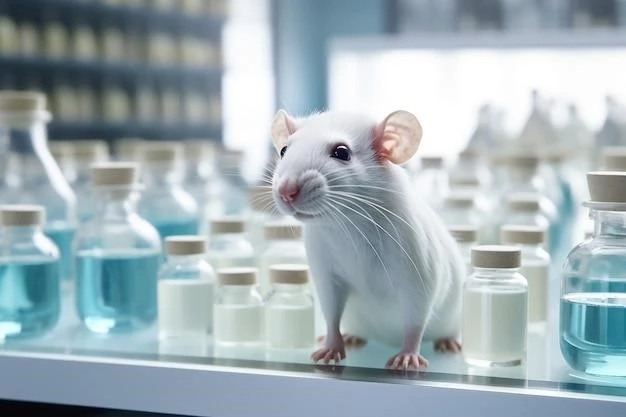The use of animals for human purposes is deeply ingrained in our history and culture. We utilize animals for companionship‚ labor‚ food‚ clothing‚ entertainment‚ and research. However‚ this reliance on animals has sparked ongoing ethical debates concerning animal welfare and our moral obligations towards them. This article delves into the complex ethical considerations surrounding animal testing and consumption‚ examining arguments from various perspectives.

Animal Testing
Animal testing‚ or animal research‚ refers to the use of non-human animals in experiments for scientific and medical advancements. While this practice has contributed to the development of vaccines‚ medicines‚ and treatments for various diseases‚ it raises significant ethical concerns.
Arguments for Animal Testing
- Medical Advancements: Proponents argue that animal testing is crucial for developing life-saving treatments and cures for diseases. They point to historical examples like the development of insulin for diabetes and the polio vaccine‚ which relied heavily on animal research.
- Biological Similarities: Animals‚ especially mammals‚ share physiological and biological similarities with humans. This makes them valuable models for studying human diseases and testing the safety and efficacy of new drugs and treatments before they are used in clinical trials on humans.
- Lack of Alternatives: While alternatives to animal testing‚ such as computer models and cell cultures‚ are being developed‚ they are not yet sophisticated enough to replace all animal experiments. Proponents argue that until viable alternatives are available‚ animal testing remains necessary.
Arguments Against Animal Testing
- Ethical Concerns: Opponents argue that animal testing is inherently cruel and inhumane. Animals used in experiments are often subjected to pain‚ suffering‚ stress‚ and confinement‚ and many are euthanized at the end of the studies. They argue that inflicting such suffering on sentient beings is morally wrong‚ regardless of the potential benefits to humans.
- Speciesism: Critics argue that using animals in research is a form of speciesism—the belief that humans are superior to other species and have the right to use them for their own purposes. They argue that all sentient beings deserve equal moral consideration.
- Scientific Validity: Some opponents question the scientific validity of animal testing‚ arguing that results from animal studies are not always directly applicable to humans due to physiological differences. They point to examples where drugs that showed promise in animal trials failed in human trials or had unexpected side effects.
Animal Consumption
The consumption of animal products‚ particularly meat‚ is another area of significant ethical debate. While it has been a traditional part of many cultures’ diets for centuries‚ concerns about animal welfare‚ environmental sustainability‚ and human health have led to increasing scrutiny of this practice.
Arguments for Animal Consumption
- Nutritional Value: Meat is a good source of protein‚ iron‚ vitamin B12‚ and other essential nutrients. Proponents argue that these nutrients are crucial for human health and development‚ and that meat consumption is a natural and efficient way to obtain them.
- Economic Importance: The animal agriculture industry plays a significant role in the global economy‚ providing jobs and income for millions of people.
- Cultural Significance: Meat consumption is deeply ingrained in many cultures and traditions‚ often playing a central role in social gatherings‚ religious ceremonies‚ and family meals.
Arguments Against Animal Consumption
- Animal Cruelty: Opponents argue that modern factory farming practices are inherently cruel and inflict immense suffering on billions of animals each year. They point to issues like intensive confinement‚ mutilations without pain relief‚ and inhumane slaughter methods.
- Environmental Impact: Animal agriculture is a major contributor to environmental problems like climate change‚ deforestation‚ water pollution‚ and biodiversity loss. Critics argue that reducing or eliminating meat consumption is essential for environmental sustainability.
- Health Concerns: Some studies suggest that high consumption of red and processed meats may increase the risk of certain health problems‚ such as heart disease‚ stroke‚ type 2 diabetes‚ and some types of cancer.

Seeking Ethical Solutions
The ethical dilemmas surrounding animal testing and consumption are complex and multifaceted. There is no easy answer‚ and finding a balance between human needs and animal welfare requires careful consideration of all perspectives. Some potential solutions include:
- Promoting Alternatives to Animal Testing: Investing in the development and validation of alternative methods‚ such as in vitro testing‚ computer modeling‚ and human-based research‚ can help reduce reliance on animal models.
- Improving Animal Welfare Standards: Implementing stricter regulations and guidelines for animal research and agriculture can help minimize animal suffering and improve their living conditions.
- Promoting Plant-Based Diets: Encouraging the consumption of plant-based proteins and reducing meat intake can contribute to animal welfare‚ environmental sustainability‚ and potentially improve human health.
- Fostering Dialogue and Education: Open and respectful discussions about the ethical issues surrounding our interactions with animals are essential for finding common ground and working towards solutions.
The ethical treatment of animals is a complex and evolving issue. By carefully considering the arguments from all sides and actively seeking ethical solutions‚ we can strive to create a more compassionate and sustainable world for both humans and animals.










